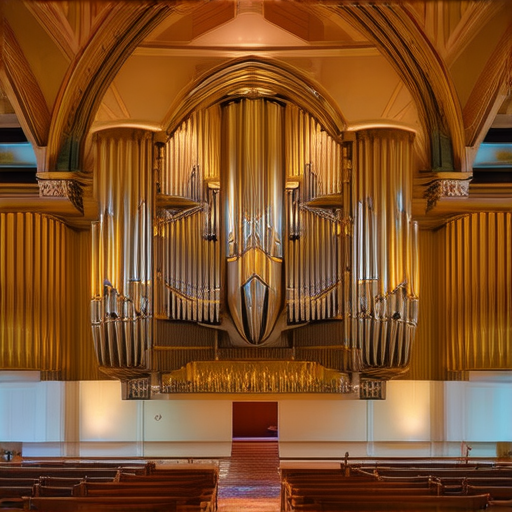As Christians gather together for worship services, they engage in a rich tapestry of traditions, rituals, and expressions that have evolved over centuries. From the solemnity of prayer to the joyousness of music, each element plays a vital role in shaping the overall experience. In this comprehensive exploration, we delve into the intricacies of Christian worship services, examining the various forms, materials, and essential elements that comprise these sacred gatherings.

Types of Worship in Christianity
In Christianity, there are four primary types of worship that believers engage in to deepen their relationship with God.
-
Sacramental Worship
Sacramental worship involves rituals and ceremonies that symbolize God’s presence and love. These sacraments are considered essential for spiritual growth and development. Examples of sacramental worship include baptism, communion, and marriage.
-
Liturgical Worship
Liturgical worship emphasizes the importance of tradition and ritual in worship. This type of worship often involves set prayers, hymns, and readings from scripture. Liturgical worship helps believers connect with their heritage and community.
-
Charismatic Worship
Charismatic worship focuses on the gifts of the Holy Spirit, such as speaking in tongues, healing, and prophecy. Charismatics believe that these gifts are essential for spiritual growth and empowerment. Charismatic worship often involves music, dance, and spontaneous prayer.
-
Missional Worship
Missional worship prioritizes serving others and sharing the gospel with those who need it most. Missional worship involves outreach, evangelism, and community service. This type of worship recognizes that worship is not just about personal devotion but also about serving others.
Each type of worship has its unique characteristics and emphasis, yet they all share a common goal: to glorify God and deepen our relationship with Him.
Materials Used in Christian Worship
We believe that our faith is deeply connected to the physical objects we use during worship.
-
Bibles
We use Bibles as a primary source of scripture and guidance in our faith. They come in various translations and versions, each offering unique perspectives and interpretations of God’s word.
-
Altar Cloths
Altar cloths are used to cover the altar during worship services, symbolizing the sacred space where we connect with God. These cloths often feature intricate designs and patterns, representing the beauty and majesty of our Creator.
-
Pews
Pews are a staple in many churches, providing seating for congregants during worship services. They can be made from a variety of materials, including wood, metal, and plastic, each offering its own unique aesthetic and functionality.
-
Chalices and Patens
Chalices and patens are used during Communion services, holding the bread and wine that represent Christ’s body and blood. These vessels are typically made from silver, gold, or other precious metals, signifying their importance in our faith.
-
Hymnals
Hymnals are collections of songs and hymns that we sing during worship services. They often feature beautiful music and lyrics that express our praise and gratitude to God.
-
Crosses
Crosses are a powerful symbol of our faith, reminding us of Christ’s sacrifice and love for humanity. They can be found in various forms, including crucifixes, crosses, and other decorative pieces.
-
Incense Burners
Incense burners are used to release fragrant incense during worship services, symbolizing prayer and devotion. They often feature intricate designs and patterns, adding to the beauty and ambiance of our gatherings.
-
Organ Pipes
Organ pipes are a vital part of many church organs, producing rich and beautiful sounds that enhance our worship experiences. They can be made from a variety of materials, including wood, metal, and glass.
-
Stained Glass Windows
Stained glass windows are a stunning feature in many churches, filtering natural light and adding color and beauty to our spaces. They often depict scenes from Scripture or other meaningful themes.
We hope this helps you understand the significance of these materials in our Christian worship.

What Are the 4 Common Elements of Worship?
Purification, singing, thanksgiving, and giving are four fundamental components of worship that transcend geographical boundaries and denominational affiliations.
-
Purification
Purification involves cleansing our hearts and minds before approaching God in worship. This can take various forms, such as prayer, fasting, or meditation, depending on individual preferences and cultural contexts.
- Prayer helps us acknowledge our dependence on God and seek His forgiveness for past transgressions.
- Fasting allows us to detach ourselves from worldly desires and focus on spiritual pursuits.
- Meditation enables us to quiet our minds and listen to God’s whispers.
-
Singing
Singing is a universal language that transcends linguistic barriers and cultural differences. It expresses our emotions, gratitude, and love for God through melodies and harmonies.
- Singing praises God’s greatness, majesty, and goodness.
- It fosters community bonding and unity among believers.
- Singing can be a powerful tool for evangelism and outreach.
-
Thanksgiving
Thanksgiving acknowledges God’s provision, blessings, and mercy in our lives. It involves expressing gratitude through words, actions, and offerings.
- We give thanks for physical sustenance, health, and relationships.
- We express appreciation for spiritual gifts, talents, and opportunities.
- Thanksgiving encourages generosity and charitable giving.
-
Giving
Giving involves offering our resources, time, and energy to support God’s work and bless others. It demonstrates our trust in God’s sovereignty and provision.
- We give financially to support missionaries, churches, and charitable causes.
- We volunteer our time and skills to serve others and spread the Gospel.
- Giving promotes stewardship, accountability, and responsible management of resources.
These four elements of worship – purification, singing, thanksgiving, and giving – are essential for cultivating a deeper relationship with God and serving others effectively.

The Five Essential Elements of Worship
As followers of Christ, we understand the significance of worship in our lives. At its core, worship is a multifaceted expression of our devotion to God, encompassing various aspects that work together to create a rich and meaningful experience.
-
Singing
Singing is a vital component of worship, allowing us to express our emotions, thoughts, and feelings through music. Whether it’s hymns, choruses, or contemporary songs, singing provides a means for us to connect with God and others in a powerful way.
-
Praying
Prayer is a fundamental aspect of worship, enabling us to communicate with God, seek His guidance, and express gratitude for His blessings. Through prayer, we can deepen our relationship with Him and find comfort in times of need.
-
Preaching
Preaching is a crucial element of worship, serving as a means for us to hear God’s Word and gain insight into His plans and purposes. Through sermons and teachings, we can grow in our understanding of Scripture and apply its principles to our daily lives.
-
Giving
Giving is an essential part of worship, demonstrating our trust in God’s provision and generosity. By offering our tithes and offerings, we acknowledge His sovereignty and demonstrate our commitment to supporting the spread of the Gospel.
-
Communion
Communion, also known as the Lord’s Supper, is a sacred ritual that reminds us of Christ’s sacrifice and our dependence on Him. As we participate in Communion, we reflect on the significance of Jesus’ death and resurrection, and we are reminded of our need for forgiveness and redemption.
In order to truly experience the richness of worship, it’s essential to balance these five elements, allowing each one to complement and enhance the others. By doing so, we can cultivate a deeper sense of connection with God and foster a more vibrant community of believers.
At Global Ministries Online, we strive to provide resources and support for individuals seeking to deepen their understanding of worship and its various elements. Our mission is to empower believers to live out their faith with confidence and passion, and we believe that worship plays a vital role in this process.
The Three Pillars of Worship
In Islam, the three pillars of worship are fundamental principles that guide our relationship with Allah.
-
The First Pillar: Tawhid (Monotheism)
- It involves acknowledging Allah’s uniqueness and rejecting any form of polytheism or idolatry.
- This pillar is essential in establishing a strong foundation for our faith and guiding our actions and decisions.
-
The Second Pillar: Shukr (Gratitude)
- It involves recognizing the source of all goodness and thanking Allah for His mercy and provision.
- This pillar helps us cultivate a sense of humility and appreciation for the blessings we receive.
-
The Third Pillar: Taqwa (Piety)
- It involves striving to live a righteous life, avoiding sin and disobedience, and seeking forgiveness for past mistakes.
- This pillar helps us develop a strong sense of accountability and responsibility towards Allah.
Tawhid is the belief in the oneness of Allah, recognizing Him as the sole creator, sustainer, and ruler of the universe.
Shukr is the act of expressing gratitude to Allah for His blessings and favors.
Taqwa is the state of being mindful of Allah’s presence and seeking to please Him in all aspects of life.
By embracing these three pillars of worship, we can deepen our connection with Allah and cultivate a stronger faith that guides us in our daily lives.

Seven Everyday Ways to Worship the Lord
We believe that worship is not limited to a specific time or place, but rather it is a lifestyle that we can cultivate every day.
-
Singing Praises
We express our gratitude and adoration through singing hymns and worship songs, which helps us connect with God on a deeper level.
-
Praying Without Ceasing
We pray throughout the day, seeking guidance, wisdom, and strength to navigate life’s challenges.
-
Reading Scripture
We read and reflect on God’s Word, allowing its teachings to shape our thoughts, words, and actions.
-
Meditating on God’s Presence
We take time to quiet our minds and focus on God’s presence, seeking His peace and comfort in times of turmoil.
-
Sharing Our Faith
We share our testimony and witness to others, spreading the Good News of Jesus Christ and inspiring others to do the same.
-
Showing Compassion and Love
We demonstrate God’s love by serving others, showing kindness, and offering a listening ear to those in need.
-
Living a Life of Obedience
We strive to live according to God’s principles, making choices that honor Him and bring glory to His name.
By incorporating these everyday ways of worship into our lives, we can deepen our relationship with God and experience His presence in every aspect of our lives.

0 Comments